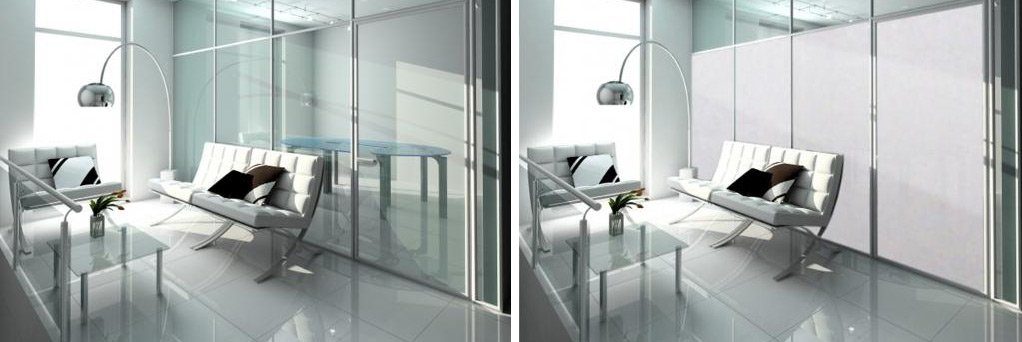Smart film, also known as switchable film or privacy film, is a type of film that can change its appearance from opaque to transparent with the application of an electric current. It consists of a thin layer of liquid crystal molecules sandwiched between two transparent conductive layers. When the electric current is applied, the liquid crystal molecules align, allowing light to pass through and making the film transparent. Conversely, when the current is turned off, the liquid crystal molecules become randomly oriented, scattering light and making the film opaque.
Smart film offers a range of applications across various industries due to its ability to switch between transparent and opaque states. Here are some common applications:
- Privacy and Security: Smart film can be used to create privacy in settings where visual confidentiality is required, such as conference rooms, office partitions, and medical facilities. By switching the film to its opaque state, it blocks the view from the outside, protecting sensitive information and enhancing security.
- Projection Screens: Smart film can serve as an alternative to traditional projection screens. When the film is in its transparent state, it allows for high-quality projections, and when switched to the opaque state, it can function as a regular surface for writing or displaying information.
- Retail Displays: Smart film can be integrated into storefronts or product displays. It enables retailers to switch between opaque and transparent modes to showcase products selectively or create an interactive shopping experience.
- Automobiles: Smart film can be applied to vehicle windows, offering privacy and reducing heat and glare from sunlight. By switching to the opaque mode, it can enhance security and prevent break-ins by obstructing the view inside the car.
- Hospitality: Smart film can be used in hotels or resorts to create versatile spaces. It can be applied to windows or glass partitions in hotel rooms or conference areas, allowing guests to control their privacy preferences.
- Energy Efficiency: In architecture, smart film can contribute to energy efficiency by controlling the amount of sunlight entering a building. By switching to the opaque state, it reduces heat gain, minimizing the need for air conditioning and reducing energy consumption.
- Healthcare: Smart film finds applications in healthcare settings such as hospitals or clinics. It can be used on windows or partitions in patient rooms, providing privacy for patients and staff, while also allowing easy monitoring when needed.
- Advertising: Smart film can be utilized for interactive advertising displays. By switching between transparent and opaque modes, it can reveal or conceal promotional messages or products, attracting attention and engaging viewers.
Smart film solutions offer flexibility, convenience, and innovation in various industries, allowing for adaptable and customizable environments that can be easily adjusted to meet specific needs.

